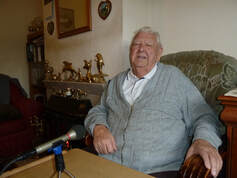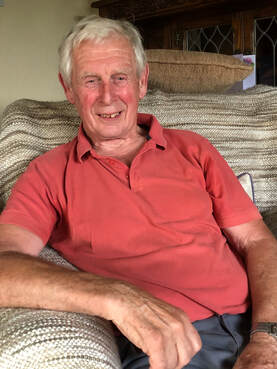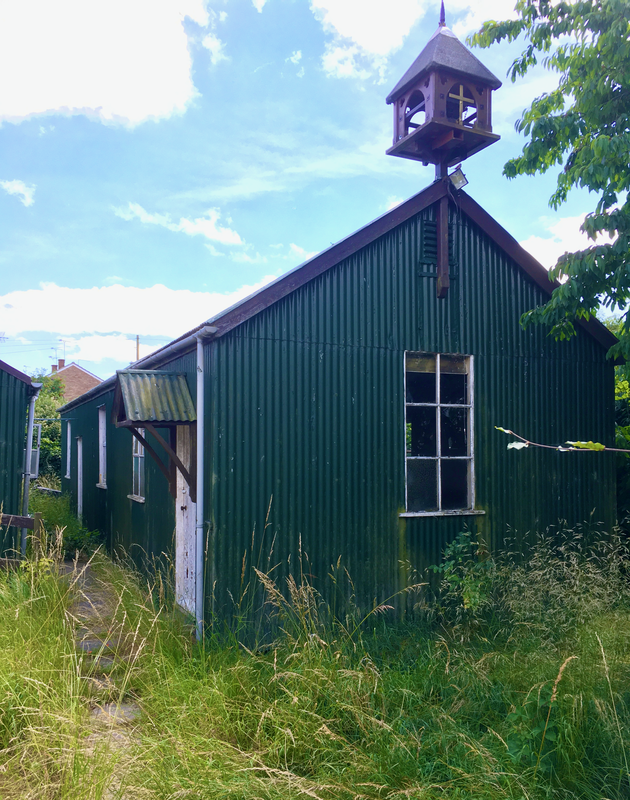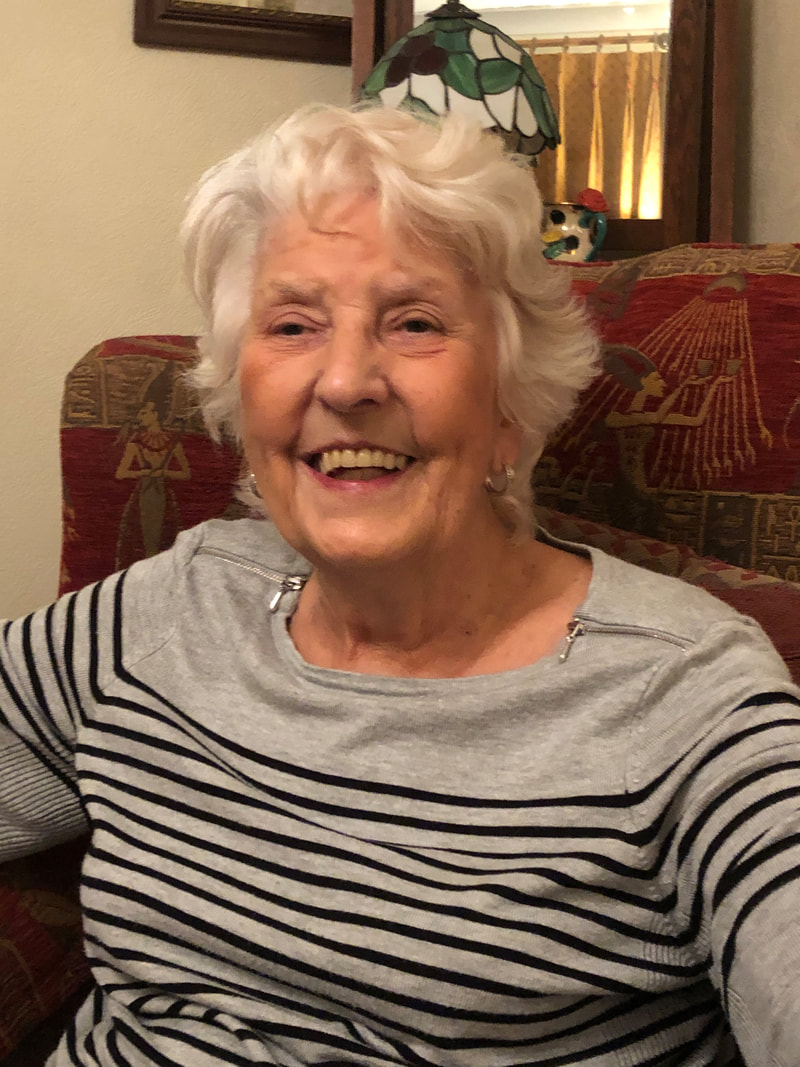|
Saturday 8th October 10am-4pm, at St Stephen's Church
If you have photos, documents or objects associated with the Mission and your connection with it, please bring them along too as we would love to see them! We want to work with you to record your own accounts of the Mission for sharing online and stored for posterity in the Dean Heritage Centre. All of this, working with the local community, will be leading up to a local exhibition event in Summer 2023.
See you at St Stephen's! The Tin Chapel at the Edge of Town St Stephen's Church, Belle Vue Road, Cinderford, GL142AA Saturday 8th October 10am-4pm * This is a change to the previously announced date of 17th September
0 Comments
Ryan Powell is an artist who works with sound and images. ‘Happy is the Eye’, his evocative film, explores the historical interactions between people and nature in the Forest of Dean. He draws on oral history to populate his film of the landscape and subterranean Forest. He uses voices from the 1970s recordings made by Elsie O’livey and our own collection of recordings including, Thomas Preece, George Hogg, John Thomas, Ivy Gunter and Bart Venner. The visual representation portrays the night drawing in, the Forest falling asleep and dreaming of past inhabitants. It is a highly evocative work that tells a powerful story of people’s struggle to make a living from mining, forestry, commoning, domestic service and the changing Forest. The film has been produced by Nicola Wynn at Dean Heritage Centre and funded by Foresters Forest.
Happy is the Eye from Ryan Powell on Vimeo. The prestigious Oral History Society Conference saw delegates from around the world come together on the 9th and 10th July. Postponed from last year the event was, unsurprisingly, a 'virtual' one, with the advantage it was even easier for delegates from afar to present their research and join the conversations. Gathering pace in the 1960s oral history has become an important technique for historical research, but also as a tool for community consultation and community capacity building. As was clear from the conference, there is now a large community of practitioners, both academic and otherwise, who are capturing peoples' memories, histories, stories and voices fro posterity. At the Conference on Friday delegates heard some of the wonderful Forest of Dean voices recorded over the past seven years by Voices from the Forest. This was part of a presentation was given by project Directors Dr Roger Deeks and Dr Jason Griffiths, their participation in the event funded by the University of Gloucestershire's School of Media. In the opening panel, described as ‘excellent’ by one observer, Roger and Jason presented an account of how the project's findings 'mapped onto' the childhood experiences of Forest author Winifred Foley, and how this had changed in the post-War years. As evidence of this clips of people interviewed as part of the Voices from the Forest were played. As part of the presentation they also team also disputed the representation of Foley as a naïve writer, demonstrating instead that she had developed and crafted her literary voice as an author over a much longer period than is commonly thought. Her biography, they argued, was as much a well developed example of her creative writing, and however reliable, was not pure memoir.

On February 1st we are excited to be launching the first of six podcasts based on Voices from the Forest recordings from the last five years that tell the fascinating story of people in the Forest of Dean in the last half of the twentieth century. We examine from the oral sources we have collected, how people’s lives changed as the experience of work shifted from land-based work in collieries, foundries and the woodland to new jobs in factories. We listen to women explain how they found new working opportunities and were freed from the tyranny of domestic service. We also discover from listening to them, how some of these opportunities were a ‘false dawn’. Meredith and Drew invested in a new biscuit making plant in Cinderford, but it closed just over a decade later with the loss of over 300 jobs and the goliath Rank Xerox employed thousands, only to collapse in the face of digital technology. Women struggled for equality in the workplace, with unequal pay and few employment rights.
We begin by looking at the impact of World War Two an event that influenced and shaped the next fifty years and when the cry of ‘Got and gum chum’ rang out on the streets of Cinderford. Listen to find out about the bombs and the Yanks that shook the Forest. You can listen to the podcast here, at Voices from the Forest - just go to the Podcast page - or you can find us on Spotify and Apple Podcasts. Here's a short taster of what's to come...
 Our latest addition comes from retired police officer Nigel Isaac. Born in 1942, Nigel grew up in Hucclecote and remembers the anti-aircraft infrastructure there from World War Two. He talks about going to school in Gloucester and the bullying he experienced. His varied working life saw him first following his parents' advice to take up an apprenticeship, but closure of the factory gave him the chance to make his own choice and he decided to work in farming. Later he decided to join the police force and underwent training at the police college in Dorset. Moving back to the area now as a police officer, he describes how much he enjoyed walking the beat in and around Lydney, and how - without radios - they kept in touch with the station. Nigel also describes how he became involved in anti-poaching patrols on the River Wye. |
Archives
August 2022
Categories |







 RSS Feed
RSS Feed


